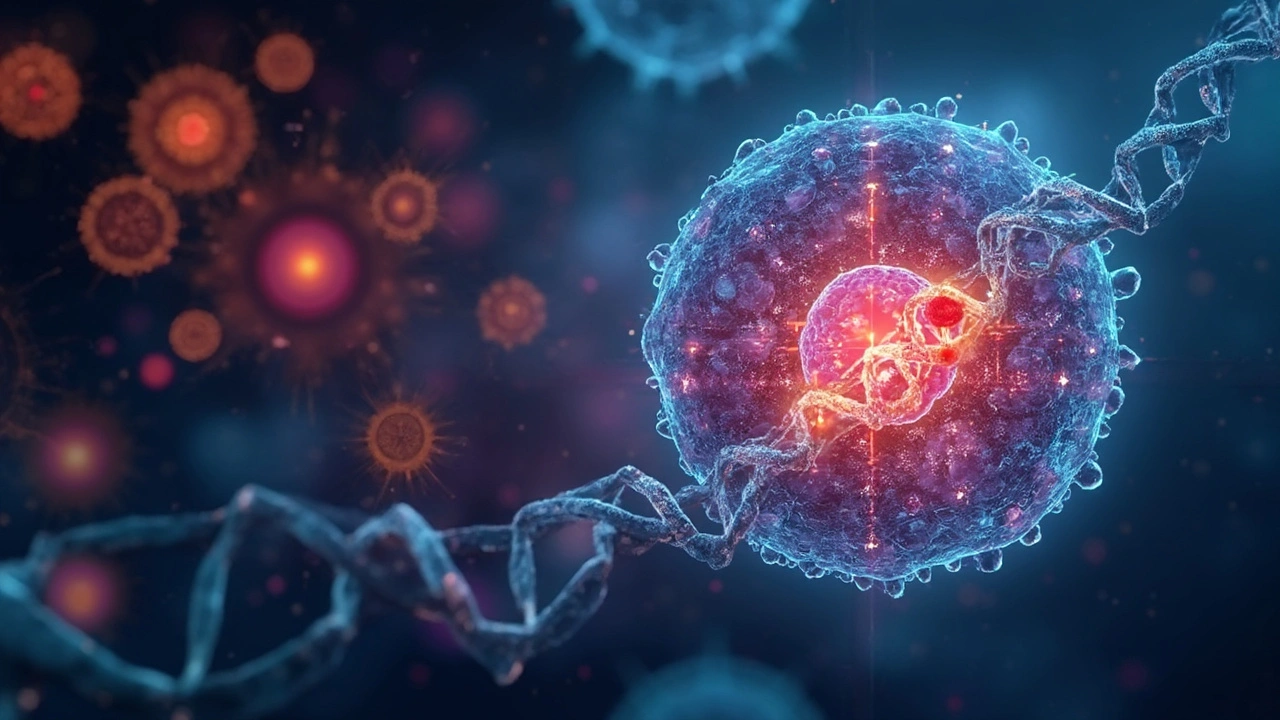Genetic Mutations: What They Mean for Your Health and Medicines
A tiny change in your DNA can change how a disease starts, how fast it progresses, or how a medicine works for you. That’s the basic idea behind genetic mutations. Some are harmless quirks. Others change proteins, raise disease risk, or alter how your liver breaks down drugs. Knowing the difference helps you make smarter choices about tests, treatments, and lifestyle.
How mutations affect health
Mutations come in two main flavors: hereditary and somatic. Hereditary mutations are passed down from a parent and show up in every cell—think BRCA1/BRCA2 and increased breast or ovarian cancer risk, or CFTR changes that cause cystic fibrosis. Somatic mutations happen during life in a specific tissue, like the changes that drive many cancers.
Not all mutations cause disease. Many are neutral or only raise risk slightly. What matters is where the change is and what that gene does. For example, some mutations damage DNA-repair genes and make cancer more likely, while others affect receptors or enzymes that medicines target. That’s why two people with the same diagnosis can respond very differently to the same drug.
Testing, treatment, and your medicines
Genetic testing can answer practical questions: Am I at higher risk for a condition? Will a drug work for me or cause side effects? Pharmacogenetic tests look at genes that control drug metabolism. If your body breaks a drug down too fast, it might not work; if you break it down too slowly, you might get stronger side effects. Examples include genes that affect warfarin dosing, clopidogrel activation, and how codeine converts to morphine.
Testing isn’t always needed. Doctors usually recommend it when test results would change care—like choosing a cancer drug, adjusting a blood thinner dose, or avoiding a medication with likely harm. If you’re curious, ask your provider why a test may help and how results would change treatment. If results are complex, a genetic counselor can explain them in plain language and outline next steps for family members.
What should you do right now? Keep a record of major diagnoses and any severe reactions to medicines. Share family history with your clinician—who in your family had early heart disease, certain cancers, or repeated bad drug reactions. That info often guides whether genetic testing is useful.
On this tag page, you’ll find articles that touch on genetics, drug choices, and tests that matter for everyday care. Browse pieces on specific drugs, medication interactions, and practical tips for talking to your doctor. If a test is recommended, ask about benefits, limits, cost, and privacy before you proceed.
If you want help reading test results or deciding if a genetic test makes sense, consider a genetics clinic or a pharmacist familiar with pharmacogenetics. They’ll turn complex DNA info into clear steps you can act on.
Key Genetic Mutations Behind Aggressive Cancer Growth: Oncogenes & Tumor Suppressors Explained
Dig into the real drivers of aggressive cancers: the genetic mutations that push cells to multiply and resist control. This article lays out the major oncogenes and tumor suppressor genes making it happen, their deadly dance, and how you can actually spot and use this info. Covering hard facts with a practical lens, it tackles both the shocking speed of tumor growth and how doctors chase down these genetic clues. If you want to understand why some cancers explode while others simmer, all roads lead to your DNA.
View more
